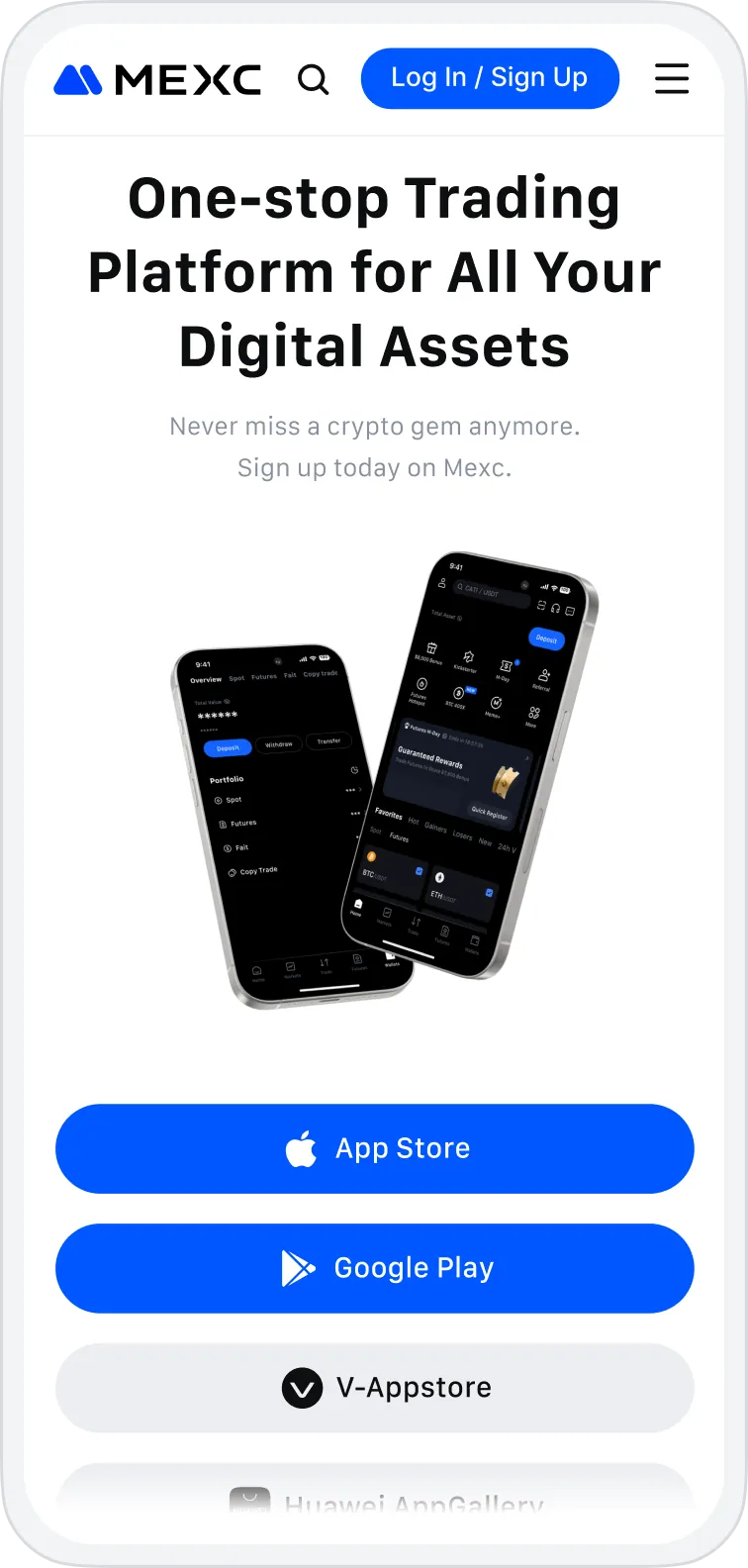
Abelian Price(ABEL)
Abelian Price(ABEL)
1 ABEL to USD Live Price:
Abelian Price Today
The live Abelian (ABEL) price today is $ 0.10796, with a 10.89% change over the past 24 hours. The current ABEL to USD conversion rate is $ 0.10796 per ABEL.
Abelian currently ranks #908 by market capitalization at $ 12.09M, with a circulating supply of 111.96M ABEL. During the last 24 hours, ABEL traded between $ 0.09676 (low) and $ 0.11191 (high), reflecting market activity. Its all-time high stands at $ 1.5703190389504647, while the all-time low was $ 0.03026414280417002.
In short-term performance, ABEL moved -0.59% in the last hour and -9.88% over the past 7 days. Over the past day, total trading volume reached $ 43.72K.
Abelian (ABEL) Market Information
No.908
49.72%
2022-04-17 00:00:00
ABEL
The current Market Cap of Abelian is $ 12.09M, with a 24-hour trading volume of $ 43.72K. The circulating supply of ABEL is 111.96M, with a total supply of 132543245. Its Fully Diluted Valuation (FDV) is $ 24.31M.
Abelian Price History USD
-0.59%
+10.89%
-9.88%
-9.88%
Abelian (ABEL) Price History USD
Track the price changes of Abelian for today, 30 days, 60 days, and 90 days:
| Period | Change (USD) | Change (%) |
|---|---|---|
| Today | $ +0.0106023 | +10.89% |
| 30 Days | $ -0.00212 | -1.93% |
| 60 Days | $ -0.05253 | -32.74% |
| 90 Days | $ -0.01513 | -12.30% |
Today, ABEL recorded a change of $ +0.0106023 (+10.89%), reflecting its latest market activity.
Over the past 30 days, the price shifted by $ -0.00212 (-1.93%), showing the token's short-term performance.
Expanding the view to 60 days, ABEL saw a change of $ -0.05253 (-32.74%), giving a broader perspective on its performance.
Looking at the 90-day trend, the price moved by $ -0.01513 (-12.30%), offering insight into the token's long-term trajectory.
Want to unlock the all-time price history and price movements of Abelian (ABEL)?
Check out the Abelian Price History page now.
AI Analysis for Abelian
AI-driven insights that analyze Abelian latest price movements, trading volume trends, and market sentiment indicators, delivering real-time updates to identify trading opportunities and support informed decision-making.
What factors influence Abelian's prices?
1. Market sentiment and investor confidence in privacy-focused cryptocurrencies
2. Technological developments and updates to the Abelian protocol
3. Adoption rates and real-world use cases for privacy transactions
4. Overall cryptocurrency market trends and Bitcoin correlation
5. Regulatory changes affecting privacy coins globally
6. Trading volume and liquidity on exchanges
7. Competition from other privacy-focused cryptocurrencies
8. Network security and decentralization metrics
9. Community growth and developer activity
10. Macroeconomic factors affecting risk assets
Why do people want to know Abelian's price today?
Price Prediction for Abelian
In 2040, the price of Abelian could potentially see a growth of 0.00%. It could reach a trading price of $ --.
For real-time scenario projections and a more personalized analysis, users can utilize MEXC's Price Prediction Tool and AI Market Insights.
Want to know what price Abelian will reach in 2026–2027? Visit our Price Prediction page for ABEL price predictions for the years 2026–2027 by clicking Abelian Price Prediction.
About Abelian
ABEL is a digital asset that operates on its own proprietary blockchain network. It is designed to facilitate instant, secure, and low-cost international transactions, serving as a medium of exchange between parties. The ABEL network uses a consensus mechanism known as Proof-of-Stake (PoS), which allows holders of the ABEL token to validate transactions and earn rewards. The supply of ABEL tokens is fixed, providing a predictable issuance model. ABEL's ecosystem is primarily geared towards financial transactions, with a focus on remittances and cross-border payments, aiming to improve the efficiency and reduce the cost of these processes in the global economy.
How to buy & Invest Abelian
Ready to get started with Abelian? Buying ABEL is quick and beginner-friendly on MEXC. You can start trading instantly once you have made your first purchase. To learn more, check out our full guide on how to buy Abelian. Below is a quick 5-step overview to help you begin your Abelian (ABEL) Buying journey.
Sign Up for an Account and Complete KYC
Add USDT, USDC, or USDE to Your Wallet
Head to Spot Trading Page
Choose Your Tokens
Complete Your Purchase

What can you do with Abelian
Owning Abelian allows you to open more doors in terms of just buying and holding. You can trade BTC across hundreds of markets, earn passive rewards through flexible staking and savings products, or leverage professional trading tools to grow your assets. Whether you are a beginner or professional, experienced investor, MEXC makes it easy to maximize your crypto potential. Below are the top four ways you can make the most of your Bitcoin tokens
Trading with Extremely Low Fees on MEXC
Buying Abelian (ABEL) on MEXC means more value for your money. As one of the lowest-fee crypto platforms on the market, MEXC helps you reduce costs from your very first trade.
Check out MEXC's competitive trading fees
Furthermore, you can trade selected spot tokens with absolutely no fees via MEXC's Zero Fee Fest.
What is Abelian (ABEL)
Abelian is a post-quantum privacy-preserving Blockchain network, which adopts the NIST standardized lattice-based cryptography, and is cryptographically proven secure. Its cryptocurrency ABEL is also anonymous and untraceable.
Abelian Resource
For a more in-depth understanding of Abelian, consider exploring additional resources such as the whitepaper, official website, and other publications:
People Also Ask: Other Questions About Abelian
Abelian (ABEL) Important Industry Updates
| Time (UTC+8) | Type | Information |
|---|---|---|
| 01-27 12:55:50 | Industry Updates | US Ethereum Spot ETF Ends 4-Day Net Outflow Streak with $117 Million Net Inflow |
| 01-27 09:28:11 | Industry Updates | Crypto Fear Index Rises to 29, Exits "Extreme Fear" Zone |
| 01-27 09:23:45 | Industry Updates | Spot silver returns to $110/oz, spot gold breaks through $5,070/oz |
| 01-26 23:16:49 | Industry Updates | U.S. Senate Reschedules CLARITY Act Review Meeting to This Thursday |
| 01-26 12:27:36 | Industry Updates | Bitcoin's gains for the month have been completely erased, falling approximately 10.9% from its monthly high |
| 01-26 07:56:31 | Industry Updates | In the past 12 hours, liquidations across the network totaled $583 million, primarily long positions |
Abelian Hot News


Berkshire’s Buffett was still hunting massive deal in last days as CEO

Here’s how Warren Buffett’s stock has performed since Berkshire exit
Explore More about Abelian
Trade Abelian (ABEL) Markets on MEXC
Explore spot and futures markets, view live Abelian price, volume, and trade directly.
More Cryptocurrencies to Explore
Top cryptocurrencies with market data available on MEXC
Disclaimer
Cryptocurrency prices are subject to high market risks and price volatility. You should invest in projects and products that you are familiar with and where you understand the risks involved. You should carefully consider your investment experience, financial situation, investment objectives and risk tolerance and consult an independent financial adviser prior to making any investment. This material should not be construed as financial advice. Past performance is not a reliable indicator of future performance. The value of your investment can go down as well as up, and you may not get back the amount you invested. You are solely responsible for your investment decisions. MEXC is not responsible for any losses you may incur. For more information, please refer to our Terms of Use and Risk Warning. Please also note that data relating to the above-mentioned cryptocurrency presented here (such as its current live price) are based on third party sources. They are presented to you on an “as is'' basis and for informational purposes only, without representation or warranty of any kind. Links provided to third-party sites are also not under MEXC’s control. MEXC is not responsible for the reliability and accuracy of such third-party sites and their contents.
ABEL-to-USD Calculator
Amount
1 ABEL = 0.10796 USD
